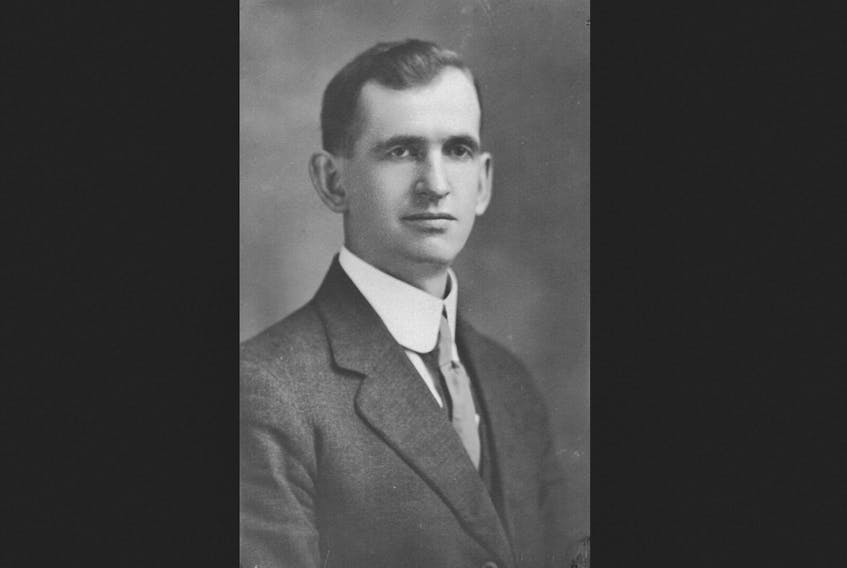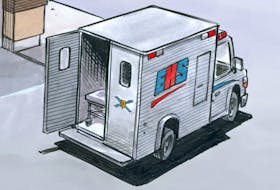Just lately I’ve heard some daunting tales of structural silos and weighty bureaucracy impeding health care in Nova Scotia.
When you listen to some politicians you’re meant to think the issues are disappearing, but I’m not convinced. This week I thought I’d share some Valley medical history in contrast.
My grandfather, Malcolm Elliott, began practicing in Wolfville around 1915. He once wrote that he entered medicine to serve his community as a doctor and as a citizen. That attitude took him many places, including being part of the medical team that responded to the Halifax explosion.
Before there were hospitals in the 1920s, this area’s first public health nurse, the feisty Mary Harry, and my grandfather sometimes travelled together on calls. In winter, the roads were often blocked by snow for days, so they went by horse and sleigh. They would put the horse in a nearby barn and set out on snowshoes the rest of the way to deliver a baby or tend to someone with pneumonia.
Reading Vernita Murphy’s memoirs, which I recently picked up at Randall House in Wolfville, I found stories that were new to me. For example, one January after the Eastern Kings Memorial Hospital opened in 1930, Vernita recalled a blizzard was raging and the roads were bad as she was getting ready to deliver a baby that night. She looked out the window watching the “storm going on outside, I saw Dr. Elliott’s car being pulled by a pair of horses. He was bringing a patient to the hospital and by then, the roads were blocked.”
Of course, there was no ambulance service in those days. Later the same night Vernita saw a sled being pulled by a team of oxen. There was a well-wrapped patient on the sled — another expectant mother who came from Port Williams.
Years ago, a nurse who worked at the Wolfville hospital told me about travelling up the South Mountain during a snowstorm after an expectant mother made an emergency call. Half way to their destination, a horse and sleigh appeared through the swirling flakes. In it sat a man and woman and cuddled warmly in blankets lay their eight-pound baby boy. No one was the worse for the experience.
In 1934, Vernita’s young daughter caught scarlet fever. It began with a bad sore throat, then redness developed on her chest and throat. A very serious disease in those days, scarlet fever necessitated quarantine. The child missed three months of school and her mother recalled the helpful house calls of her doctor.
Country doctors certainly had some challenges in the 1930s. Once my grandfather had to use a canoe to reach a patient at Evangeline Beach because flooded marshland cut off highway travel. (We may see that again with climate change…)
After a cold snap settled in, he tried to negotiate his return on the thin ice and went through. Doggedly continuing on his journey home, he found himself wading in chilly water up to his hips. In that era before car heaters, his clothes froze on the drive home, but luckily there were no ill effects.
According to family lore, my grandfather, suffered a detached retina in 1944 from overwork due to the shortage of medical doctors in the Annapolis Valley during the Second World War. He had to go to Montreal for an operation, where he was robbed of his watch while his eyes were bandaged. His medical advisors told him not to work for a year afterward.
When a group of men, largely prosperous farmers, in Port Williams found out that he would be without an income for 12 months, they quietly took up a collection. The money they raised replaced my grandfather’s income.
What an amazing gift for a doctor who operated out of an office in his family home as many did then. Of course, much has progressed in the medical system of today, but have those close doctor-patient relationships diminished? It is almost impossible to compare then and now, but I do love what the stories indicate about community.
- Former Advertiser and Register reporter Wendy Elliott lives in Wolfville.









